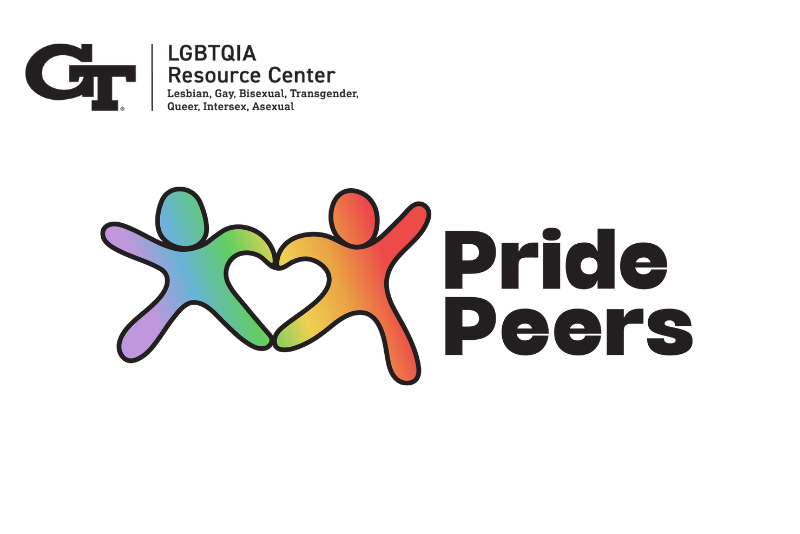What are the goals?
The goals of the Pride Peers Mentoring Program are:
- Connections to facilitate community
- Positive identity development
- Provide on and off campus resources
- Promote health and wellness across the dimensions of professional, physical, spiritual, emotional, and social well-being
- Support self-care, healthy boundaries, and mental health
- Encourage resilience as a Georgia Tech student
Is this for me?
If you identify with any of the following, Pride Peers might be for you:
- I am confused or uncertain about my identity/identities
- I want someone to talk to about my identity/identities or experiences
- I want someone to help me become more involved in communities on campus
- I want someone to introduce me to resources on campus
- I want advice on how to meet people in the community
- I am new to Georgia Tech and want someone to help me adjust to campus
Theoretical Grounding
(1) “Thematic analysis of surveys reveals the importance of peer mentor authenticity, flexibility, and being a graduate of the mental health program where vocational services were based. Valued relational processes include the act of talking in the community, feeling understood, and forming a bond with peer mentors. Mentees with positive peer mentoring experiences reported stronger working alliances."
Perspectives of Young Emerging Adults With Serious Mental Health Conditions on Vocational Peer Mentors, Vanessa V. Klodnick, et al, Journal of Emotional and Behavioral Disorders, 2015;23(4):226-237.
(2) “According to national data by the Substance Abuse and Mental Health Services Administration (SAMHSA), the LGBTQ community faces disproportionately high rates of behavioral health conditions, including both mental health conditions and substance use disorders.”
Protections for LGBTQ People with Behavioral Health Needs, Abbi Coursolle and Rachel Holtzman*, National Health Law Program, 2019
(3) “We continue to see higher rates of mental health disorders in LGBTQ adolescents particularly when social support is lacking (Williams et al., 2005). An individual in this population faces an inordinate amount of stigma, bullying, and violence related to their gender identity or sexual orientation... This review highlights the necessity of continuing to strive for interventions that will provide all types of support (familial, community, school, and social networks) to facilitate mental health for LGBTQ adolescents. Comprehensive and inclusive intervention programs that are geared toward reducing bullying behaviors and work to include information about gender and sexual variances is key to reducing overall victimization of LGBTQ adolescents. Finally, it is the layering of multiple levels and types of social support (peer support, family support, mentor support, community support) that may have the greatest impact on the reduction of mental health disorders in LGBTQ adolescents. “
Kari McDonald (2018) Social Support and Mental Health in LGBTQ Adolescents: A review of the literature, Issues in Mental Health Nursing, 39:1, 16-29
Evaluation & Assessment Forms
Complete the evaluation & assessment forms each month.
2023-2024 Pride Peers Guidebooks
To view or print PDF files, Adobe Acrobat Reader must be installed on your computer. You may download Adobe Acrobat Reader free of charge from the Adobe web site. To return to this page, use the back button on your browser.
